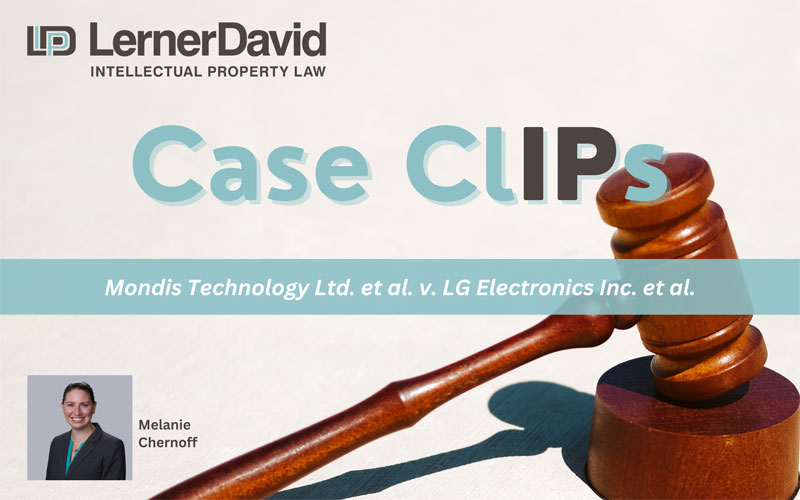
In Mondis Technology Ltd. et al. v. LG Electronics Inc. et al., Nos. 2023-2117, 2023-2116 (Fed. Cir. Aug. 8, 2025), the Federal Circuit held that there is no presumption that claim amendments made during prosecution that result in allowance are supported by adequate written description. More specifically, an “examiner’s allowance of the claims [does not] by itself provide[] substantial evidence that the claims comply with the requirements of § 112.”
Mondis sued LG, alleging infringement of patents related to controlling a display that can receive video signals from an external source, such as a computer. The computer can request control of the display by transmitting an ID number, which is subsequently compared to a number stored by the display unit. If there is a match, the computer can control the display. LG challenged the validity of the claims, asserting that features added to the claims during prosecution lack adequate written description. The district court sided with Mondis, finding that the claims were valid and infringed.
The Federal Circuit reversed, finding that, based on the testimony of Mondis’ expert and the specification itself, there is no written description to support the added claim features. The Federal Circuit held that there is no presumption of validity of the claims with respect to written description support, even if the Examiner accepts and enters an amendment to allow the case. In particular, the Federal Circuit found that the case was allowed because the added claim features was not identified in the prior art and this does not constitute substantial evidence that there is written description support for the added claim features.